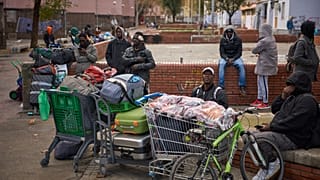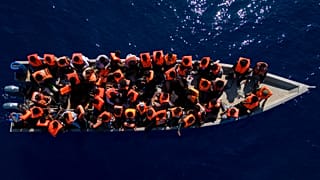Tanzania
Under the equatorial sun, women wade knee-deep in the turquoise waters off Paje beach, their colorful kangas rippling in the breeze. In their hands are baskets filled with seaweed — the marine algae that has quietly become one of Zanzibar’s biggest exports.
It’s an idyllic image that draws the lenses of curious tourists. Yet behind the postcard view lies back-breaking labor and growing environmental challenges.
“The main challenge of this work, as you can see, is this seaweed needs sticks, ropes, and ties. You have to prepare and stick the poles until they are spread out. When you stand up, your back aches,” says Pili Khalid Pandu, a seaweed farmer from Mwani Zanzibar.
Seaweed farming has long been a pillar of Zanzibar’s coastal economy. But today, a global boom — driven by demand from the food, pharmaceutical, and cosmetics industries — is giving the island’s farmers renewed hope. The algae’s natural thickening and stabilizing agents are found in everything from toothpaste to face cream.
A Women-Led Industry
An estimated 25,000 people, most of them women, make their living from seaweed farming across the archipelago, according to Zanzibar’s government. The trade ranks third in export value after tourism and spices.
In a society where fewer than half of women are formally employed, seaweed farming offers independence and income — though often at a steep physical cost.
“There are risks when working in the water during farming,” explains Mwanaisha Makame Simai, another seaweed farmer. “Sometimes you may be bitten by sea creatures like pufferfish, catfish, or sea urchins — and if you stay out too long, you can’t go back to the ocean for farming.”
Long hours in the water also cause back pain, dehydration, and skin irritations. For many women balancing household duties, the work can feel endless. Yet, they persist — driven by the promise of better livelihoods and pride in sustaining their communities.
Climate Challenges Beneath the Surface
What was once a near-shore activity is now being pushed further out to sea. Rising water temperatures linked to climate change are making traditional shallow-water farms less viable.
“So these seaweed farmers, now they are forced to go in the deep water, away from the coast, so that they can get to the proper area where the seaweed can grow well,” says Waziri Mhando, project manager at the Milele Zanzibar Foundation. “Because of climate change and other challenges they face, one of the most important skills for seaweed farmers now is swimming.”
Milele’s programs now include swimming lessons for women farmers, aiming to reduce accidents and drowning incidents that have increased in recent years.
Turning the Tide Through Innovation
Efforts to make seaweed farming safer and more profitable are underway. At Mwani Zanzibar, a boutique seaweed company based in Paje, women are being trained not only to farm seaweed but to turn it into soaps, lotions, and other cosmetic products.
By shifting more of the value chain onto the island, such initiatives are helping women capture greater profits — and spend less time battling the elements.
Global players are also taking notice. In 2020, commodity giant Cargill partnered with The Nature Conservancy to invest in Zanzibar’s seaweed sector, aiming to improve yields and raise incomes. Meanwhile, international bodies like the Global Seaweed Coalition are promoting sustainability and fair labor standards as production scales up.
A Blue Economy with a Human Face
For Zanzibar’s semi-autonomous government, seaweed sits at the heart of its “blue economy” agenda — a plan to grow prosperity through sustainable use of marine resources.
But for the women in Paje and across the archipelago, that “blue economy” is more than policy. It’s their daily reality — one of hard labor, quiet resilience, and hope for a future where their work is valued as much as the shimmering waters they harvest from.












01:09
Chinese foreign minister begins annual Africa tour with Ethiopia visit
11:18
Making Africa’s Creative Sector Bankable {Business Africa}
00:58
Nigeria and Tanzania get ready to face off in Fez in round one of AFCON Group C
01:59
Police deployed to major cities in Tanzania ahead of planned protests
Go to video
Fears of new clashes as police in Tanzania outlaw Independence Day protests
01:04
CAF Champions League: Al Ahly, Mamelodi, Young Africans in action